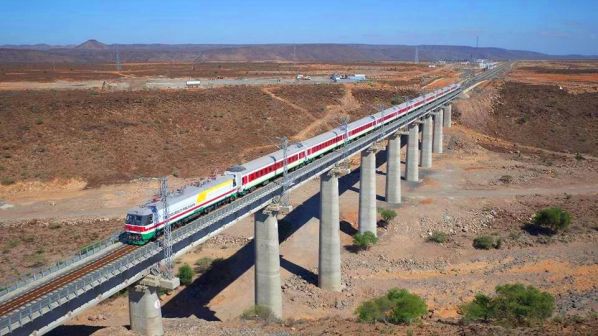
Over 2800 local staff have now been trained in operations, maintenance and safety.
CHINA Civil Engineering Construction Corporation (CCECC) and China Railway Engineering Corporation have formally handed over the management of the standard-gauge Ethiopia-Djibouti railway to the governments of Ethiopia and Djibouti.
The handover was marked by a ceremony which took place on May 10 at Lebu station on the outskirts of the Ethiopian capital Addis Ababa, attended by senior government officials from Ethiopia and Djibouti.
The two Chinese companies have been responsible for building and maintaining the 752km electrified line from Addis Ababa to Djibouti, which entered service in January 2018.
Since then, over 2500 passenger trains have been operated, carrying 680,000 passengers. More than 7700 freight trains have also used the railway, carrying a total of 9.5 million tonnes.
The Ethiopia-Djibouti railway has cut the transit time for freight moving between Ethiopia and Djibouti from more than three days to less than 20 hours, reducing transport costs by at least one-third. Around 90% of landlocked Ethiopia’s imports and exports pass along the Ethiopia-Djibouti corridor.
The railway now employs over 3000 staff, all now local as a result of an extensive training programme. This has seen leadership training provided for 200 middle and senior management personnel, with a further 100 local managers travelling to China for training.
“The Chinese team is making every effort to promote capacity-building,” says Mr Guo Chongfeng, chief executive of CCECC’s Ethiopian branch.
“A total of 2840 people have been trained and have qualified, completing the localisation of all railway professions in the field of operations, maintenance and safety management.”
“Six years ago, we embarked on a journey that would connect our two great nations, Ethiopia and Djibouti,” says Mr Abdi Zenebe, CEO of Ethio-Djibouti Railway (EDR).
“Today, as we celebrate the successful operation and maintenance of this railway, we reflect on the remarkable achievements that have brought us here.”
For detailed data on African rail projects, subscribe to IRJ Pro.

